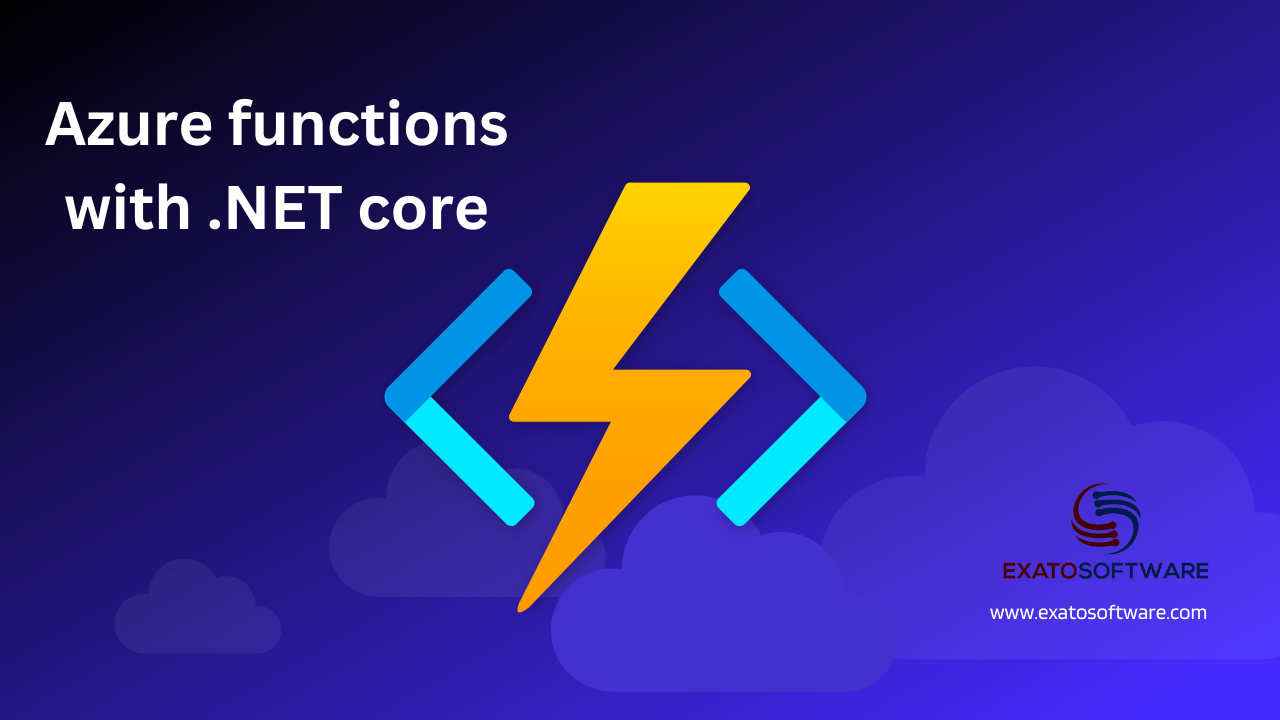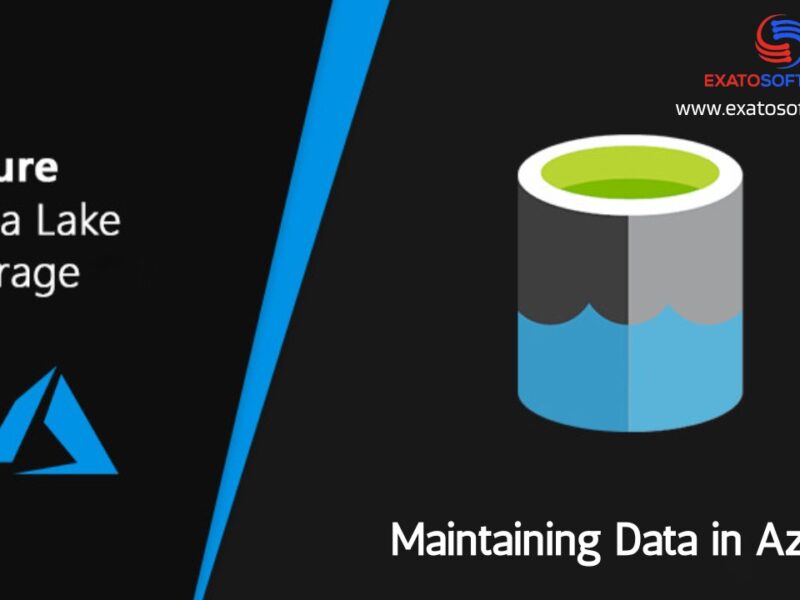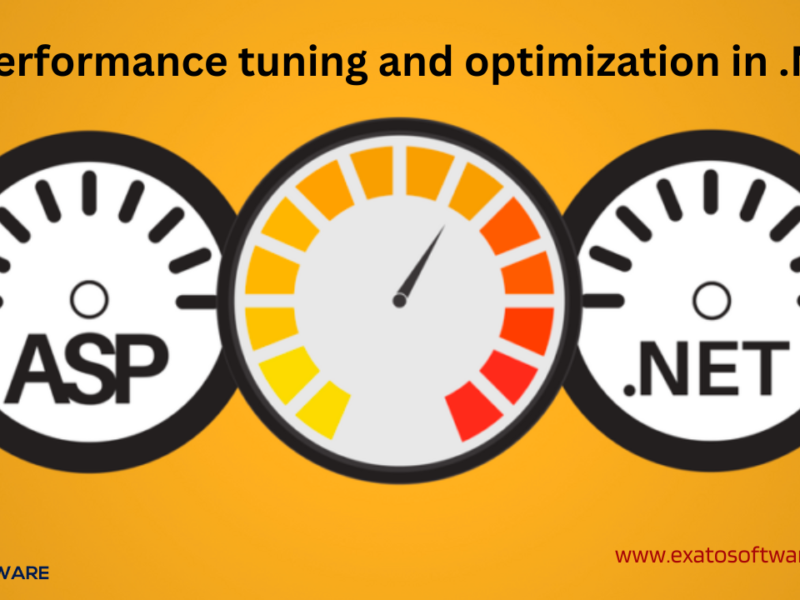What is Serverless Computing?
Serverless computing is a cloud computing execution model where cloud providers manage the infrastructure dynamically, allocating resources on-demand and charging based on actual usage rather than pre-purchased capacity. In serverless computing, developers focus solely on writing code to implement the application’s functionality without concerning themselves with server provisioning, scaling, or maintenance.
Aure with .NET Core
Azure Functions is Microsoft’s serverless computing offering that allows developers to build event-driven applications in the Azure cloud environment. Azure Functions support multiple programming languages including C#, F#, Node.js, Python, and Java, making it accessible to a wide range of developers.
How Azure Functions enable event-driven, scalable applications using .NET Core
1. Event-driven architecture: Azure Functions are designed to respond to various events that occur within Azure services or external systems. These events can include HTTP requests, timer triggers, message queue messages, database changes, file uploads, or IoT device telemetry. Developers can write functions that execute in response to these events, enabling reactive and scalable application designs.
2. Serverless execution: With Azure Functions, developers write code in the form of discrete functions that perform specific tasks. Each function is independently deployed and executed in a stateless manner. Azure dynamically allocates resources to execute functions in response to events, scaling automatically based on workload demand. Developers are billed only for the resources consumed during function execution, leading to cost-efficient resource utilization.
3. Integration with Azure services: Azure Functions seamlessly integrate with various Azure services and features, enabling developers to build powerful workflows and applications. For example, functions can interact with Azure Blob Storage, Azure Cosmos DB, Azure Event Hubs, Azure Service Bus, Azure SQL Database, and more. This tight integration simplifies application development by providing easy access to a wide range of cloud services.
4. Support for .NET Core: Azure Functions fully supports .NET Core, allowing developers to write functions using C# or F# and leverage the rich ecosystem of .NET Core libraries and frameworks. Developers can use familiar development tools such as Visual Studio, Visual Studio Code, and Azure DevOps for writing, debugging, testing, and deploying .NET Core-based functions.
5. Flexible deployment options: Azure Functions offer flexible deployment options, allowing developers to deploy functions directly from Visual Studio, command-line tools, Azure portal, Azure DevOps pipelines, or source control repositories such as GitHub or Azure Repos. Functions can be deployed individually or as part of larger serverless applications composed of multiple functions.
6. Scalability and performance: Azure Functions automatically scale out to accommodate increased workload demand, ensuring high availability and responsiveness of applications. Functions can be configured to run in different hosting plans, including a consumption plan (pay-per-execution) or an app service plan (dedicated resources), depending on performance requirements and budget constraints.
To sum up, Azure Functions enable developers to build event-driven, scalable applications using .NET Core by providing a serverless execution environment, seamless integration with Azure services, support for multiple programming languages, flexible deployment options, and automatic scalability and performance management.
How you can use Azure Services such as Triggers, Bindings and Dependency injection
Triggers: Triggers in Azure Functions are what initiate the execution of your function. They define the events or conditions that cause a function to run. Triggers can be based on various Azure services or external events.
Example:
– Blob Trigger: Triggers a function when a new blob is added or modified in Azure Blob Storage.
– HTTP Trigger: Triggers a function in response to an HTTP request.
– Timer Trigger: Triggers a function based on a schedule or time interval.
– Queue Trigger: Triggers a function when a message is added to an Azure Storage queue.
– Event Hub Trigger: Triggers a function when an event is published to an Azure Event Hub.
Bindings: Bindings in Azure Functions provide a declarative way to connect input and output data to your function. They abstract away the details of working with various Azure services and simplify the code required to interact with them.
Example:
– Blob Storage Binding: Allows you to read from or write to Azure Blob Storage directly within your function code without explicitly managing connections or performing I/O operations.
– HTTP Binding: Allows you to send HTTP responses directly from your function without manually constructing HTTP responses.
– Queue Binding: Enables reading from or writing to Azure Storage queues without directly interacting with the storage SDK.
– Cosmos DB Binding: Enables reading from or writing to Azure Cosmos DB collections without managing Cosmos DB client connections.
Dependency Injection: Azure Functions supports dependency injection (DI) to inject dependencies into your function instances. This allows you to manage and resolve dependencies such as services, configurations, or repositories in a more modular and testable way.
Example:
```csharp
// Define a service interface
public interface IMyService
{
void DoSomething();
}
// Implement the service
public class MyService : IMyService
{
public void DoSomething()
{
// Do something
}
}
// Function class with dependency injection
public class MyFunction
{
private readonly IMyService _myService;
public MyFunction(IMyService myService)
{
_myService = myService;
}
[FunctionName("MyFunction")]
public void Run([TimerTrigger("0 */5 * * * *")] TimerInfo myTimer, ILogger log)
{
_myService.DoSomething();
log.LogInformation($"C# Timer trigger function executed at: {DateTime.Now}");
}
}
```
Integration with .NET Applications: Azure Functions seamlessly integrate with .NET applications, allowing you to incorporate serverless components into your existing .NET projects.
Example:
– You can create Azure Functions projects using Visual Studio or Visual Studio Code and develop functions using C# or F#.
– You can use Azure Functions Core Tools to develop and test functions locally before deploying them to Azure.
– You can integrate Azure Functions with other Azure services such as Azure App Service, Azure Storage, Azure Cosmos DB, Azure Service Bus, Azure Event Hubs, Azure Logic Apps, and more.
– You can use Azure DevOps pipelines or GitHub Actions to automate the deployment of Azure Functions as part of your CI/CD workflows.
By leveraging triggers, bindings, dependency injection, and seamless integration with .NET applications, you can build scalable, event-driven solutions with Azure Functions that integrate seamlessly with other Azure services and existing .NET projects.



